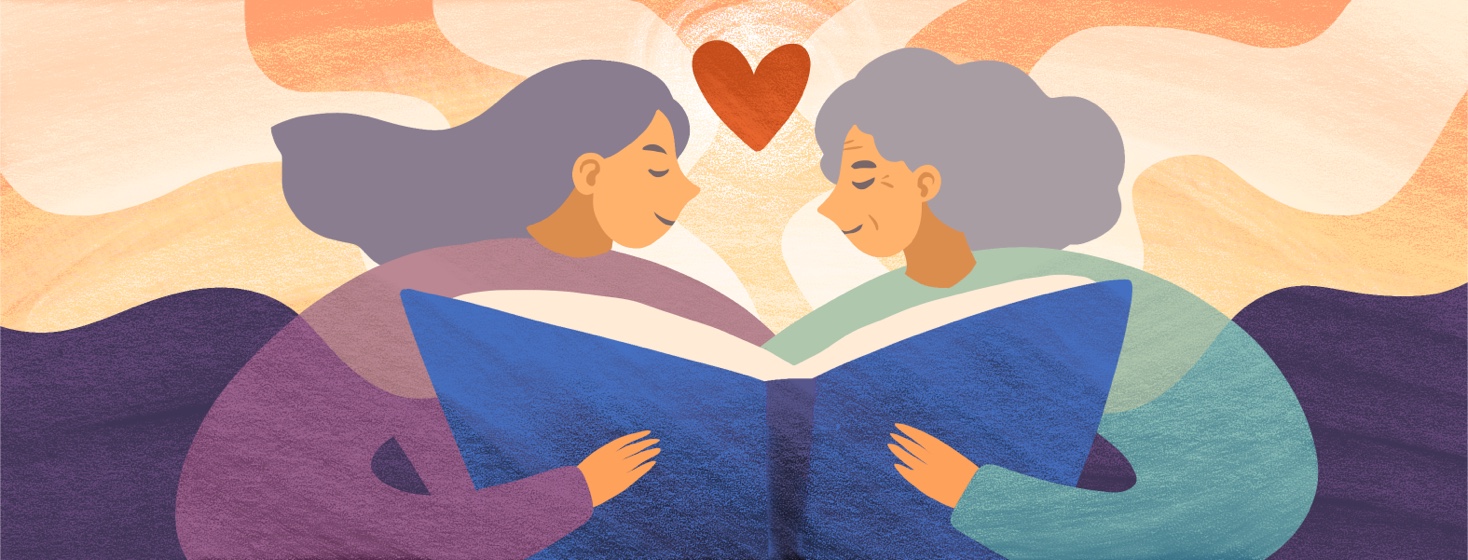The Caregiver Hack That Makes My Loved One With Dementia's Life (and Mine) Better
Caring for someone with dementia can be tough. It's a daily battle against a disease that robs our loved ones of their personality, independence, and memories.
As a family caregiver, it can be overwhelming to try to navigate the challenges of this disease while trying to provide the best care possible. But, as a former caregiver to my mom, I have learned a valuable lesson that made all the difference in my loved one's life – and mine.
This is the number 1 caregiver hack that made my loved one with dementia's life (and mine) better.
The top caregiver hack
So, what is this number 1 caregiver hack? It's simple, really – it's gratitude.
I know that may sound cliché, but let me explain. When I first started caring for my loved one with dementia, I was overwhelmed with all the tasks that needed to be done, the appointments that needed to be scheduled, the medications that needed to be given. It was easy to feel frustrated, exhausted, and resentful.
But, as I started to shift my focus from all the things that were going wrong to all the things that were going right, I began to notice a change in my attitude – and my loved one's too.
Featured Forum
View all responsesFocusing on gratitude
I began to feel grateful for the moments of joy that my mom and I experienced together.
I started to appreciate the small victories – like when my loved one remembered my name or the way they would smile at me when we were sharing a laugh. I began to see the beauty in the present moment and realized that each day with my loved one was a gift.
By focusing on gratitude, I was able to manage the stress of caregiving better and find more joy in the journey.
A reflection onto my loved one
It's not just about me. Gratitude has made a significant impact on my loved one's life too. When I would express gratitude for things my loved one did, it would bring a smile to her face. It would make her feel appreciated and valued, even if they didn't remember why.
Focusing on gratitude also helped me to find creative ways to engage my loved one, which helped to improve their mood, reduce agitation, and promote socialization.
Another thing that helped me immensely was starting a gratitude journal. Every evening, I would take a few minutes to jot down at least 3 things that I was grateful for that day. Sometimes, they were big things – like a good report from a doctor's visit – and sometimes, they were small things – like a warm hug from my loved one.
No matter what they were, they reminded me of all the blessings in my life – and there are many. Taking the time to reflect on what I'm grateful for has helped to shift my mindset from one of worry and stress to one of positivity and hope.
Shifting my focus
Being a caregiver for someone with dementia is challenging, but focusing on gratitude has made all the difference in my loved one's life – and mine.
By shifting my focus from all the negative aspects of the disease to the moments of joy and connection, I have been able to manage stress better, find creative ways to engage my loved one, and promote a more positive outlook.
If you're a family caregiver, I encourage you to give gratitude a try. Start a gratitude journal, take a few minutes each day to reflect on what you appreciate, and see how it can transform your caregiving journey.

Join the conversation